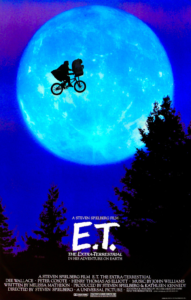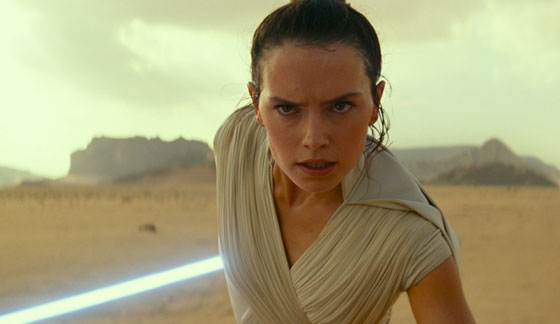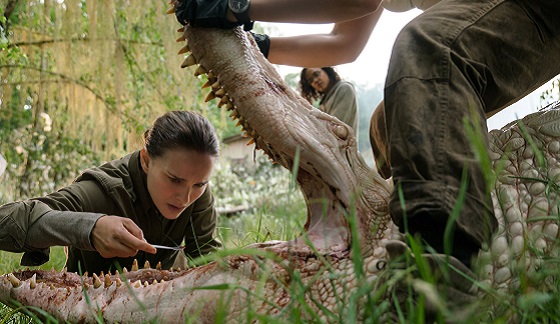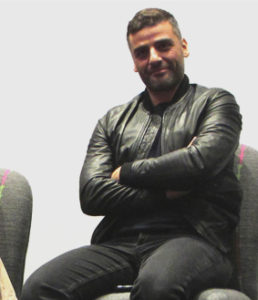Director Terry George’s new film The Promise, which opened April 21st, sets a love triangle between an Armenian medical student (Oscar Isaac), an American journalist (Christian Bale) and the Armenian-born but raised-in-Paris Ana (Charlotte Le Bon) against the backdrop of the end of the Ottoman empire. The drama unfolds amidst the oft-under discussed Armenian genocide that took place beginning in 1915. It is a controversial subject that George and his cast hope the film can shed light on, even going so far as to donate all the film’s proceeds to human rights charities.
The cast, which also includes James Cromwell and Westworld’s Angela Sarafyan, gathered at their New York press conference to talk about what the film meant to them and some of the pushback making a movie on this subject can draw.
Conference discussion edited for article length.
Why did you decide to take this movie and what kind of approach did you take to your role?
Oscar Isaac
Oscar Isaac: For me, to my shame, I didn’t know about the Armenian genocide before I got the script and spoke with Terry. So it was new to me. And to read about that–to read that 1.5 [million] Armenians perished at the hands of their own government was horrifying and that the world did nothing…Not only that but to this day it’s so little known, there’s active denial of it. So that really was a pretty significant part of it. Also the cast that they put together. And then to learn that 100% of the proceeds would go to charity was just an extraordinary thing to be a part of.
My approach was to read as much as I could to try to immerse myself in the history of the time. And also in LA there’s a small museum that a few of us got to go to and see some stuff. And then for me, I think the biggest help was I had these videos and recordings of survivors that would recount the things that they witnessed as little boys and children. Whether it was seeing their grandmothers bayoneted…or their mothers and sisters sometimes crucified–horrible atrocities and to hear them recounted with, almost they would sound like they had regressed to those little kids again, and that was heartbreaking. So I did feel some responsibility to try to tell their story.
Christian Bale: And for me, continuing off what Oscar was saying, you know he was talking about the documentaries where you can see survivors talking about these horrific experiences that they’d seen their loved ones, families, that had been very barbarically killed…And to try to get into that mindset, to try in a very small way to understand the pain that they must have gone through, and the fact that people were telling them they were lying about what had happened. And they had witnessed it with their own eyes, had all of that emotion, but there were people who refused to call it what it is, a genocide. There are still people who refuse to call it that. We have yet to have any sitting US president call it a genocide–Obama did before, but not during–the Pope did, recently. But it’s this great unknown genocide, and the lack of consequence may well have provoked other genocides that have happened since. And for me, it became startlingly relevant because as I was reading the script and in the same way as Oscar was, learning about the Armenian genocide as I reading this–embarrassing, but I think we’re in the same boat as many people– I’m reading about…Armenians who were being slaughtered under siege on this mountain, and I’m watching on the news and it was the yazidis under siege, being slaughtered by ISIS… And just thinking this is so relevant…and so tragic, it’s very sad that it is still relevant.
Charlotte Le Bon
Charlotte Le Bon: By watching documentaries, I talked a lot with Armenian friends that I have in France…Also it was really present, just like Christian was saying–A couple months before the shooting I was in Greece just on a holiday, I was on Lesbos Island, who is the door to Europe through Turkey, and it was the beginning of the massive arrival of the refugees. And they were coming like a thousand per day, it was really really impressive. And I didn’t know about it by then. And I just remember being in the car and watching hundreds and hundreds of people walking by the street…and it was really really moving to see that. The only thing I could do was just like give them a bottle of water, you don’t really know what to do. And a couple of months later I was on set and recreating the exact same scene that I saw just a couple of months before.
Angela Sarafyan: I had known about the Armenian genocide because I grew up hearing stories from grandparents–the stories they had heard from their parents about their grandparents. So doing this film was very very close to my heart because it was a chance for me to give some light to that world in a very different way. It’s never existed on film, it’s a very controversial issue. So what I got to do was really look at the time and look at what it must have been like to live in that time. The simplicity of what that village was. And kind of survival and the romanticism of living in a small place. And learning how people survived in the atrocity. I didn’t really have to go through some of the horrendous things that you see, but I loved being able to kind of investigate that simple life. And I read more, because Terry had introduced so many books and scripts and material on it. So that was it.
Did the Turkish government give you any problems? Any kind of pushback?
Christian Bale and director Terry George
Terry George: I had a very healthy exchange with a Turkish journalist in LA, a representative of the Hollywood Foreign Press, who presented that the Turkish perspective is that a genocide didn’t happen, that it was a war and bad things happen and lots of people died on both sides…I pointed out to him that that’s exactly true but in the case of the Armenians, it was their own government who was killing them. So we talked…and you know, we had this thing where IMDB was hijacked, we had the sudden appearance of the Ottoman lieutenant movie four weeks ago that was like the reverse-mirror-image of this film right down to the storyline. And there’s a particular nervousness in Europe about the film and about the current situation…So it’s an extremely embroiled subject. But our idea, as always with any of these subjects, get it out there, let some air in, let’s discuss the thing. I’d be more than willing to sit down with any representative of any Turkish organization and talk this out in terms of our different perspectives and present our perspective on it. So we want to bring air to the subject rather than hide away…let’s have this discussion.
Bale: Maybe I shouldn’t say this but don’t you think also though that’s there’s kind of a false debate been created–a bit like climate change, you know?–as though like there’s as strong evidence on one side as on the other? There isn’t. There isn’t as strong of an argument. And then similarly with this. The evidence just backs up the fact that it was a genocide.
Was there a scene that particularly moved you?
Bale: Terry and Survival Pictures decided not to show the full extent of the barbarity of the violence that was enacted during the genocide. There were multiple reasons for that that I’ll let Terry explain. But there was one scene where Mikael, Oscar’s character, he sees many of his family members and also members of his home town who have been slaughtered…that was a very emotional one I think for many people that day. So seeing Armenians who were directly connected, or had family members who knew that their origins had come–that their families had gone through that previously–that was a very affecting day for I think for every single one of us on the film.
George: …Just as I did on Hotel Rwanda, I was determined that this be a PG13 film. That teenagers, schools, people who might be squeamish about the notion of seeing an R-rated genocide movie, that the horror be psychological. And that put the burden–and carried magnificently by both Oscar and Christian on that scene–the horror of the genocide is told through how Oscar conveyed those moments of what he found in his face…
Christian, your character is a journalist who experiences questioning over everything that you’re reporting, did the relevance of that today go through your mind?
Christian Bale
Bale: Yeah yeah of course I mean that was sort of developing during filming and then obviously has become much more present in the news–What’re we calling it now? “Post-truth” era? Just how important it is to have a free press for any democracy. So yeah, that’s another aspect of the film that’s become much more relevant.
I’d love to know more of your thoughts of the web hijacking of IMDB and RottenTomatoes against this film, who do you think organized this or do you think these are individuals?
George: You know it can’t have been 50,000 individuals decided, after we had two screenings in Toronto, to [rate] us 1 out of 10. Seems like a miraculously spontaneous thing to happen. So I definitely think that was a bot, or a series of bots that were switched on…Then we had the contrary reaction from, which I genuinely think was 25,000 votes from the Armenian community–because we didn’t have a bot going–voting 10 out 10. It brought in to highlight the whole question of, not only IMDB, Rotten Tomatoes…just the whole question of manipulating the internet, and manipulating reviews and people being swayed by that. And it’s a whole new world.
For any of the actors, in your research, can you talk about any of the unsung heroes that you found out about? Secondly, can you talk about how this movie may have changed your outlook on specific causes you’d want to support as a person?
Bale: There’s Aurora Mardiganian , she’s a real Armenian national hero…who the award is named after as well, who’s a phenomenal woman who went through real tragic circumstances but came through and told her story with film as early as 1919…She was phenomenal. I mean talk about a fierce, strong woman who overcame phenomenal tragedy. She was very inspiring.
James Cromwell
James Cromwell: I think Morgenthau [Cromwell’s character] is pretty impressive, I didn’t know anything about him when I started. And also you can’t leave out the fact that there were consular officers all over Anatolia who were also sending briefs back to Washington. And that’s one of the reasons that we have the record that we have. Morgenthau’s biography, his memoirs, and these reports which were eyewitness reports.
It strikes me as amazing that today there are no people with that sort of moral outrage as part of our state department. There are ambassadors to Yemen, there are ambassadors to Sudan and Somalia and Assyria and Libya and you hear nothing. No one stands up for the people who are being oppressed all over the world now as far as taking responsibility in the way Morgenthau took responsibility. Wilson was supportive, but not the legislature, not congress. Congress was against him. And after Wilson, Hoover was very much against him, against supporting his work and against establishing the Armenian state.
So as far as a cause is concerned, it just shows us that at the top, down to the average citizen, we have been so desensitized to the suffering of people, that we cannot recognize ourselves in the other. Which is one of the reasons you do a film like this. That it has a narrative at the core, so that the audience can come in and feel what other people feel. And that by doing that you do what Shakespeare said: ‘Hold a mirror up to nature; to show virtue her own feature, scorn her own image, and the very age and body of the time his form and pressure.’ That’s what we do…
Oscar Isaac and Angela Sarafyan
Sarafyan: For me personally, it would be in my family, the orphans really. Because all of my, I guess great great great grandparents were orphaned. They didn’t have parents left, they were all taken away. So the mere fact that they were able to survive and then able to kind of form families…One of them fled to Aleppo actually to start a family in Syria, and it seems like it’s coming full circle with people today fleeing from Syria to find refuge in other countries. So I find them personally as heroes in my own life. And the mere fact that they were able to survive, form families, have a sane mind–because I think that kind of trauma changes you genetically. So I guess they really would be the heroes and for me doing the film was kind of continuing that legacy and making it kind of live forever. Instead of it just being a story that was told, it kind of lives in cinema and it will be an experience for people to watch and have as their own.





